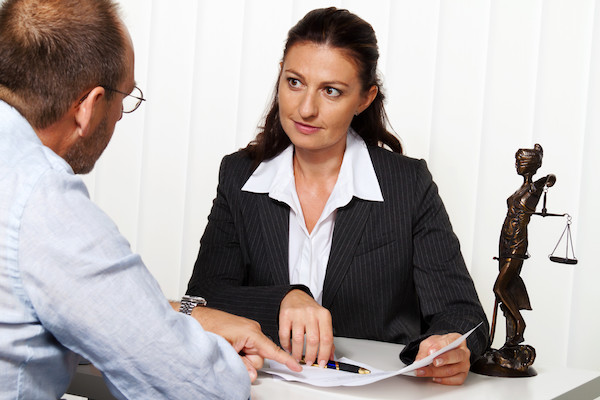Courts rely on expert testimony. This wasn’t always the case.
Folkes v. Chadd in 1782 laid the first ground rules for expert witnesses in criminal cases. Over the next 250 years, the rules and expectations for witnesses have changed significantly.
You cannot call a random person to the stand. You must find an expert witness who the jury will find convincing and captivating.
What legal standards apply to expert witnesses? What can you do to assess their experience and credibility? How should a witness behave and speak on the stand?
Answer these questions and you can find the ideal witnesses for your complicated cases. Here are the characteristics of a good expert.
Mastery of a Complicated Subject Matter
You should only call an expert witness when appropriate. Look at the evidence in your case, especially related to finances. If you can describe it in your own words, you may not need a witness.
Study the basics of finding expert witnesses. When you encounter a complicated subject, find a specialist within that subject. When you are talking about credit issues, you should find a credit professional.
Examine the backgrounds of the witnesses you are considering. You should find ones with advanced degrees and decades of experience in their lines of work.
When you bring them onto the stand, make sure you ask them questions about their experience. This will indicate their expertise to the jury.
Methodology
The Daubert standard controls expert testimony. An expert witness can appear in court under a few conditions.
Their knowledge must help the jury make sense of the evidence. What they say must be corroborated with data and a reliable methodology. The methodology must have principles that relate closely to the case.
Witnesses can have their testimonies thrown out if a judge determines their methodology is unsound. Talk to your witness about how they came to their conclusion.
If something seems fishy, ask them if others adopt their approach. You can call a witness who uses a unique methodology. But you must be able to explain why they are credible.
Lack of Bias
Many juries understand that witnesses have a level of bias. Someone is either a “defense witness” or a “plaintiff witness.” You will need to do your best to establish trustworthiness.
An industry witness should have no relationship to the case whatsoever. This is especially important with finances. If a witness stands to gain from their testimony, they can be easily discredited.
Consider selecting someone who is retired or who works in another state. You can also find someone in academia. Many juries regard academics as impartial professionals.
Demeanor
A key witness should enter the court wearing appropriate clothing. They should be well-groomed and well-rested.
While they are waiting to be called, they should be patient. They should follow the proceedings, making eye contact with each person who is talking. If it would help their testimony, you can give them a pen and paper so they can take notes.
When they appear on the stand, your witness should sit up straight. They should continue to make eye contact with anyone who is talking.
They can glance at the jury, but they should do so when it is appropriate. Looking over too much can seem passive.
Your witness can modulate their face when it makes sense. If a question confuses them, they can raise an eyebrow as they ask for clarification. But they should not be overly animated.
They should also use appropriate hand gestures. Pointing with an index finger can seem hostile.
Ability to Answer Tough Questions
Anyone you call to the stand is subject to cross-examination. Some people perform well when they are asked about their knowledge. But they may become flustered when they receive a challenge.
Practice a cross-examination with them. When you ask them questions, explain why you are asking them. This can calm the witness and help them develop their answers.
Assist them with developing narrowly tailored answers. If they offer unsolicited information, they may receive a follow-up question. The judge can also scold them for offering irrelevant material.
If the opposing lawyer asks an objectionable question, you should object. Follow the cross-examination closely and help your witness out. You can also ask for a recess if you need to go over something with them.
Charisma
Your witness should not be a dour person. They should be someone that the jury likes and respects.
An easy way to do this is to use creative language. Your witness can use similes, allusions, and metaphors. This grabs the jury’s attention and puts things in straightforward terms.
At the same time, they should use language common in their industry. They just need to explain what their jargon means. Throwing in a few technical words can make them seem more knowledgeable.
When it is fitting, your witness can be humorous. Their humor should not come at the expense of someone else in court. A self-deprecating joke can make them seem humble.
They should modulate their voice to some extent. They can drop their voice slightly to underscore an important detail. This engages the jury and makes the witness seem sophisticated.
What an Expert Testimony Should Have
A witness giving expert testimony needs to have several characteristics. They need to be a master of their line of work. Their methodology must make sense to the case.
They must be free of all biases, particularly financial ones. Their body language should be that of a calm professional. They should not get rattled by the cross-examination.
Yet they should be likable. They can modify their diction and even be a little humorous.
You don’t have to look far to find a great witness. Joe Chavarria helps consumer debt attorneys. Contact us today.


Recent Comments